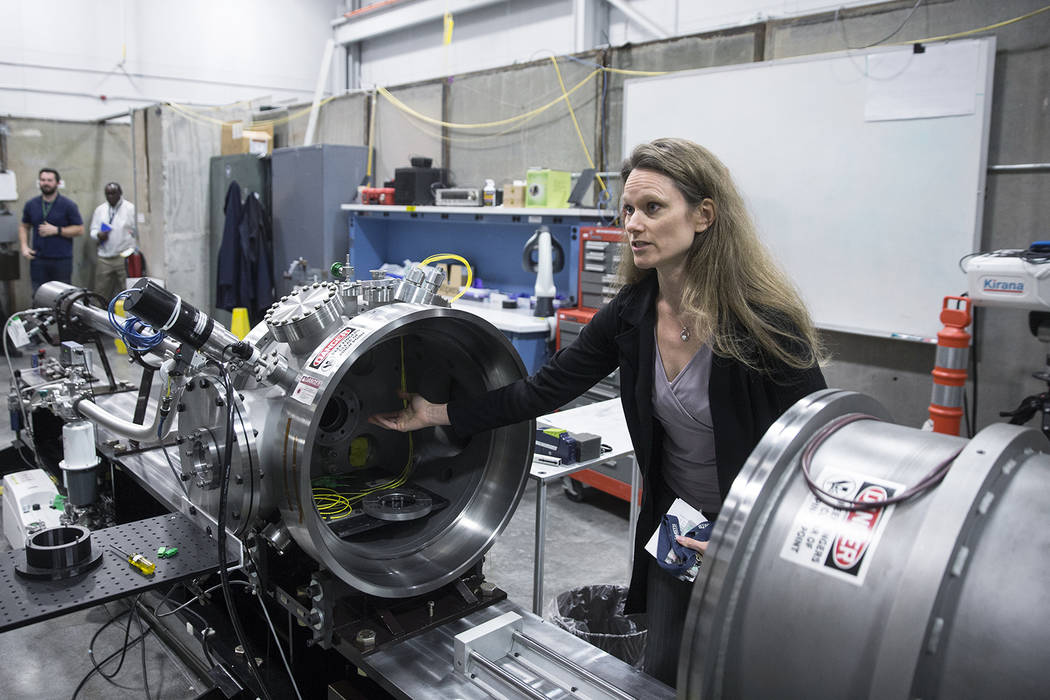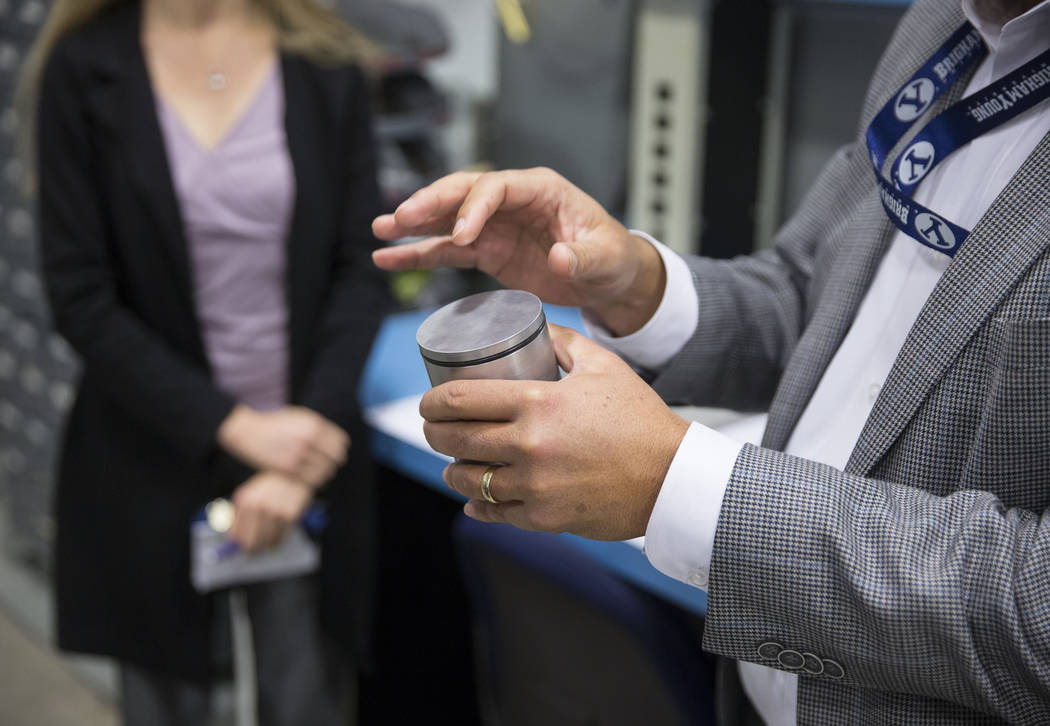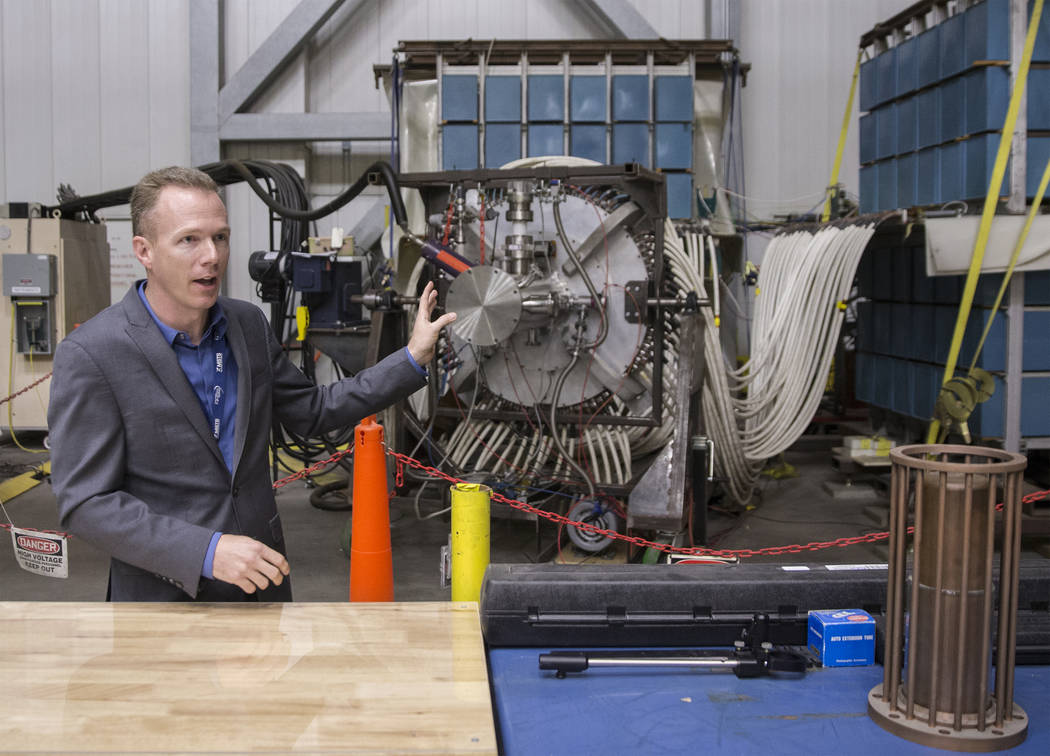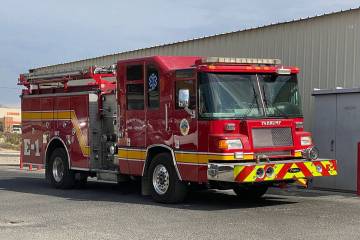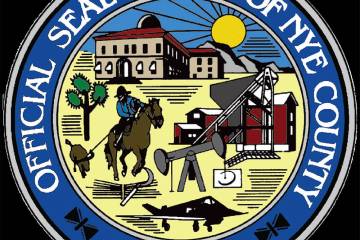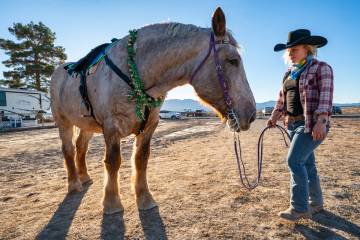Nevada compound is vital to national security
The Cold War-era compound of warehouses hums along quietly in the background of North Las Vegas.
Inside the nondescript buildings of the Nevada National Security Site location that dot a sprawling parking lot are the people who help ensure the safety, security and deterrent nature of the country’s nuclear weapons stockpile.
“All three are really important to this nation from a national security point of view,” said Mark Martinez, president of the contractor that manages operations at the site, Mission Support and Test Services.
The North Las Vegas location, near Losee Road and North Fifth Street, is the hub for several national security bases across the country, Martinez said.
“Our scientists, our engineers, a lot of our business functions reside here and support all these different activities that are going on really, literally, across the nation,” Martinez said.
The work done by the Nevada National Security Site has broadened since 1992, when a moratorium on the underground testing that rattled the desert landscape went into effect.
Nuclear weapons were never stored in North Las Vegas, but small amounts of radioactive materials have been studied in controlled portions of the facility under strict regulation, Mission Support and Test Services spokeswoman Melissa Biernacinski said.
The North Las Vegas location is now home to various operations, including a gas gun that Biernacinski said helps officials “hone the NNSS’ diagnostic and experimental competencies” and train the next generation of science, technology, engineering and mathematics workers.
The location’s machine shop builds parts for a scaled-up gas gun at NNSS’ location about 65 miles northwest of Las Vegas.
Outside of testing, a network of locations ensures the safety of large-scale events, such as the Super Bowl, the State of the Union and the New Year’s Eve celebration in Las Vegas, which draws hundreds of thousands of revelers.
And the Nevada National Security Site has provided training to more than 200,000 first responders, giving them experience in how to react to nuclear contamination situations.
“It just puts the nation in a better place,” Martinez said.
On Jan. 30, the general counsel for the National Nuclear Security Administration revealed the federal government secretly shipped half a metric ton of weapons-grade plutonium to the security site location northwest of Las Vegas. That revelation sparked a public rebuke from Nevada leaders who oppose the shipment of bomb-making materials to the state.
The Department of Energy said it selected Nevada for its capability to stash large quantities of the material.
The security site means big money for the local economy, representing nearly $1 billion in value and serving as the largest high-tech employer for Southern Nevada, Martinez said. Between contractors and federal workers, it employs about 1,200 people in the Las Vegas Valley.
Martinez said the work his team performs doesn’t stop in the warehouses or surveillance centers. He wants to engage the next generation in STEM through outreach to colleges and younger students.
“From a community perspective, we want to be seen as a driver for developing the next generation of engineers and scientists and technicians.”


